About
Science Club is the platform for the students to promote their scientific interest, realize their scientific skills and fulfill their quest in doing science activities. The club aims to organize Seminars, Workshops, Exhibition and Quiz competition to inculcate students knowledge and skill in the field of science.
Mr. Pratheesh George (Organizer)
Dr. Sunil Jose T.
Dr. Jeena Joseph,
Dr. Joyce Jose,
Mr. Shilendran V.,
- To inculcate scientific attitude.
- To provide opportunity for the development of the constructive, explorative & inventive ideas among the students.
- To develop training in scientific method of problem solving
- To develop students, interest and participation in the practical applications of the knowledge related to different branches of sciences.
Amidst this COVID-19 lockdown, the Science Club team has started conducting online webinar series in order to enhance the interest to pursue scientific research of our faculties and students. After webinar online links were sent to e-mail of all attendees consisting a ‘post webinar questionnaire’. Certificates were issued on successful completion of the above questionnaire. Feedback responses were obtained through Google form from the participants.
- Topic: RARE EARTHS ELEMENTS – THE VITAMINS OF MODERN TECHNOLOGY & LIFESTYLE”
Speaker: Shri. A Veeramani, General Manager and Head, IREL (India) Limited, Rare Earths Division, Udyogmandal, Kochi
Time: Oct 23, 2020 08:00 PM
Join Zoom Meeting
https://us02web.zoom.us/j/3946133110?pwd=WFVqWmtHUzlNWUppYmNDdWFaUklnQT09
Meeting ID: 394 613 3110
Passcode: 1234
- Topic: Homi Bhabha and Nuclear India – Vignettes from HistorySpeaker: Dr A P Jayaraman, Chairman NCSC; Director STEAM Academy and former Nuclear Scientist.Time: Oct 30, 2020 08:00 PM
Join Zoom Meeting
https://us02web.zoom.us/j/3946133110?pwd=WFVqWmtHUzlNWUppYmNDdWFaUklnQT09Meeting ID: 394 613 3110
Passcode: 12343. Topic: Technology Development Towards Fast Breeder ReactorsSpeaker: Dr K K Rajan, Principal, Viswajyothi College of Engineering and Technology, Muvattupuzha, Kerala & former Director of Fast Reactor Technology Group, IGCAR, KalpakkamTime: Sunday, Nov 22, 2020 11:00 AM
Join Zoom Meeting
https://us02web.zoom.us/j/3946133110?pwd=WFVqWmtHUzlNWUppYmNDdWFaUklnQT09Meeting ID: 394 613 3110
Passcode: 1234 - Topic: *A GLIMPSE OF THE LASER AND ITS IMPACT ON HUMANKIND *Speaker: *Dr D J Biswas, former Senior Laser Scientist, BARC, Trombay**Time: Saturday, Feb 6, 2021 08:00 PM
Abstract of talk:
Laser, regarded as one of the major inventions of the 20th century, have made huge impact in the areas of medicine, science & education, communication, defense, manufacturing industry, nuclear industry, holography, entertainment, fashion & beauty, energy, ranging, artwork preservation, advancement of science …almost anything that one can think of. There is hardly any discipline into which a laser has not made a cut. This popular science talk would dwell on ‘what is a laser, how does it work, and what is so special about the light that it gives out to impact our day to day life so profoundly’. It would attempt to provide by way of using simple illustrations, an insight into the operation of a laser and a brief account on some of its important applications that have greatly influenced our everyday life. Exploitation of the butterfly effect* towards achieving secure communication with lasers would also be elucidated.
*The butterfly effect in a literary sense means that the mere flapping of a butterfly can turn an otherwise bright and sunny day into a dull and gloomy one. No wonder, a tiny long ago act can create ripple far into the future!!!
Join Zoom Meeting
https://us02web.zoom.us/j/3946133110?pwd=WFVqWmtHUzlNWUppYmNDdWFaUklnQT09
Meeting ID: 394 613 3110
Passcode: 1234
You Tube link : https://youtube.com/channel/UCYYEKme3hd3eS2WwKugDwsw
- Topic: *Radioisotopes and Their Medical Applications *Speaker: *Dr M R A Pillai, former Head, Radiopharmaceuticals Division, Bhabha Atomic Research Centre, Trombay and Director, Molecular Cyclotrons, Pvt. Ltd. Cochin.**Time: Saturday, Feb 20, 2021 08:00 PM_Abstract of the talk_:Radioisotopes are unstable atoms and when they decay emit radiations such as alpha and beta particles and gamma photons. An atom become unstable when the proton to neutron ratio is disturbed. There are two types of radioisotopes which are called neutron excess isotopes and neutron deficient isotopes.Radioisotopes are produced in nuclear reactors and particle accelerators such as cyclotrons. The first nuclear reactor in India was set up in 1956 and radioisotopes for medical applications are being supplied since then from the Department of Atomic Energy. There are 22 cyclotrons in India producing radioisotopes for medical applications.
The most prominent application of radioisotopes is in nuclear medicine. Nuclear medicine is a medical facility which uses radioactive drugs called radiopharmaceuticals.
Radiopharmaceuticals are used for both diagnosis and therapy. The diagnostic procedures are the single photon emission computed tomography (SPECT) and Positron emission tomography (PET). SPECT is used for studying diseases associated with most of the organs such as the bone, brain, heart, kidneys, and liver. PET imaging is used for diagnosis, staging, treatment response and recurrence evalaution.Join Zoom Meeting
https://us02web.zoom.us/j/3946133110?pwd=WFVqWmtHUzlNWUppYmNDdWFaUklnQT09Meeting ID: 394 613 3110
Passcode: 1234
YouTube link: http://www.youtube.com/watch?v=ciBMlCdP8eg
Registration details of the webinar : https://docs.google.com/spreadsheets/d/1A6OelgRLd2zHkpgXjo7pADQI05CqOT4udwCnN_yVdEA/edit
- Topic: *Journey of Crop Improvement to meet the increasing global demand for food*Speaker: *Dr Susan Eapen*, World-renowned plant scientist & Former Head, Plant Biotechnology & Secondary Products Section
Bhabha Atomic Research Centre, Mumbai.Time: *Mar 6, 2021 08:00 PM_Abstract of the talk:_
During the past seven decades, tremendous progress has been achieved in the area of crop Improvement based on genetic principles. The global agricultural production will have to increase by 60 -70 % to meet the increasing demand for food in the coming years. To develop high yielding crop plants, besides conventional methods of plant breeding, application of recombinant DNA techniques, genome editing etc. are being incorporated to produce climate resilient crops resistant to diseases and pests. This, in combination with smart farming using AI, robotics, drones etc., is expected to increase the quality and quantity of farm products with optimised human labour. Use of high-tech green houses, water recycling, vertical farming, farm automation etc. are expected to achieve the objectives.Join Zoom Meeting
https://us02web.zoom.us/j/3946133110?pwd=WFVqWmtHUzlNWUppYmNDdWFaUklnQT09Meeting ID: 394 613 3110
Passcode: 1234
You Tube link : https://youtu.be/YnMqOxBbr6A
- Topic: *Particle Acceleration Devices & Their Usage in Science and Industry*Speaker: *Shri. P K Nema, former Head, MDPD Division and Outstanding Scientist, Bhabha Atomic Research Centre, Mumbai*Time: *Saturday, Mar 20, 2021 08:00 PM_Abstract of the talk_:Charged particle constituents of matter in free state can be imparted kinetic energy by electrical fields and then guided using electrical and magnetic devices to impinge on material targets, collided and/or stored in orbits. Many physical effects are observed in such devices called particle accelerators, which have been driving progress in our knowledge about the matter and natural forces that constitute and bind it. This apart, over a period of time- about a century, innumerable practical application are possible using compact accelerators; starting from medical x-rays initially to radiation beam therapy of cancer tumors, cold sterilization of healthcare products and exotic plastics, clean up of sludge and waste water, enhancing shelf-life of food products etc.Not to be left behind in such tools of progress, our country has a few R&D centres dedicated to the field of particle accelerators. These centres and other entrepreneurs have established, and are using a variety of accelerators to serve people and enhance scientific capabilities of the country. Principles involved in development of particle accelerators and typical configurations are described in this talk. This talk also covers their typical industrial and medical applications and is targeted towards science students.
Join Zoom Meeting
https://us02web.zoom.us/j/3946133110?pwd=WFVqWmtHUzlNWUppYmNDdWFaUklnQT09Meeting ID: 394 613 3110
Passcode: 1234
You Tube link: https://youtu.be/lddnUU2TjEY
- Topic: *The mysterious neutrino – X-raying the sun to origin of the universe*Speaker: *Dr. Vivek Datar, former Project Director, India-based Neutrino Observatory (INO), Distinguished Scientist and Head, Nuclear Physics Division, Bhabha Atomic Research Centre, Mumbai and Senior Professor, Tata Institute of Fundamental Research, Mumbai.*Time: Saturday, Apr 3, 2021 at 08:00 PM*Abstract of the talk*: The talk will introduce the neutrino, a ubiquitous particle about which we know extraordinarily little. While proposed by Pauli in 1930 to address the problem of understanding the continuous energy spectra of electrons emitted in beta decay, it has taken long to understand some of its properties. Its aversion to interaction with matter, while making it difficult to make measurements, also allow it to probe the interior of the sun like no other probe. Studying the properties of neutrinos and anti-neutrinos might also lead to an understanding of why the universe is matter dominated. Interest in neutrinos has grown tremendously in the last 35 years or so both because we have better tools to study them but also because they are messengers of cataclysmic events in the universe.Join Zoom Meeting
https://us02web.zoom.us/j/3946133110?pwd=WFVqWmtHUzlNWUppYmNDdWFaUklnQT09Meeting ID: 394 613 3110
Passcode: 1234
YouTube link: https://youtu.be/gVYj0hr90PI
- Topic: *Environmental monitoring and impact assessment around nuclear facilities*Speaker: *Dr P.M.Ravi, Former Head, Environmental Studies Section, Health Physics Division, Bhabha Atomic Research Centre, Mumbai & currently working as Adjunct Professor, Centre for Advanced Research in Environmental Radiactivity, Mangalore University*Time: Saturday, Apr 24, 2021 08:00 PM*Abstract of the talk*:
We are living in a sea of radiation from time immemorial due to the presence of cosmic radiation and other natural terrestrial radioactive sources such as Uranium and Thorium. For example, the parts of coastal areas of Kerala, Tamil Nadu and Orissa is rich in Thorium-232 which is a radioactive material. In industrial age, people have started using radioactive materials in power industry, medical and for many other industrial developments. In view of the hazardous nature of radiation, radioactive materials are handled very carefully in specially designed facilities and by specially trained people. This is to ensure that health of employees of nuclear facilities or that of general public living around the facilities are not harmed. Though there are hospitals and industries handling radioactivity, major users of radioactive materials are Nuclear Fuel cycle operations which involve mining and milling of uranium, fuel fabrication, nuclear reactor operation for power production, spent fuel reprocessing and waste management. Each process on its own is a big industry and handle large amount of radioactive material. During the operation of these facilities, there is potential chance of radioactive material leaking into the environment and contaminate the environmental compartments such as air, water and food items. In view of this, design and operation are managed so safely that the release to the environment is very minimal to a level that cannot lead to health impact to general public and environment. In addition to the safety features provided in nuclear installations to limit the release of radioactive materials to the environment, there is a systematic environmental monitoring program around nuclear facilities. This lecture covers the objectives of environmental monitoring, various advance techniques used in environmental monitoring and how the monitoring data is used to assess the impact to the member of public. In fact the radiation impact to the general public around nuclear facilities is almost negligible as compared to the radiation impact from inevitable natural sources.Join Zoom Meeting
https://us02web.zoom.us/j/3946133110?pwd=WFVqWmtHUzlNWUppYmNDdWFaUklnQT09Meeting ID: 394 613 3110
Passcode: 1234YouTube link: https://youtu.be/5bOYm2ZQn6o
- Topic: *Evolution of Radiation Safety Standards*
Speaker: *Sri. A.R. Sundararajan, former Director, Radiological Safety Division, Atomic Energy Regulatory Board (AERB)*.
Time: Saturday, May 8, 2021 08:00 PM
*Abstract of the talk:*
The talk will describe the early human experience with ionizing radiation, in particular the misuse of radium soon after its discovery. This will be followed by the history of development of international radiation safety standards. The concept of radiation risk or how safe is a safe dose will be explained. Presentation will include discussions on the radiation dose-risk model used in current radiation regulations and also on the challenges in the risk-assessment of low level radiation exposures.
Join Zoom Meeting
https://us02web.zoom.us/j/3946133110?pwd=WFVqWmtHUzlNWUppYmNDdWFaUklnQT09
Meeting ID: 394 613 3110
Passcode: 1234
YouTube link for webinar:https://youtu.be/YlPuB86PSEE
- Topic: *Nuclear Reactors and their Physics*Speaker: *Dr P. Mohanakrishnan, former Associated Director, Reactor Physics Group, Indira Gandhi Centre for Atomic Research, Kalpakkam & Adjunct Professor, Manipal University (2011-2018). Presently he is acting Chairman of Safety Committee of Reactor Physics, Atomic Energy Regulatory Board, Mumbai*.Time: *Saturday, Sep 4, 2021 08:00 PM*Abstract of talk: *Nuclear fission reactors have been an exciting invention of 20th century. Reactor physics aspects of these systems are being studied with interest in 21st century also. In this lecture, the basic physics principles of fission energy release and “critical” reactor are described. The reactor types prevalent in world as well as in India are listed. The constituents of reactor core and their role are explained. Finally, the physics challenge in design of a nuclear reactor and its fuel cycle are pointed out*.Join Zoom Meeting
https://us02web.zoom.us/j/3946133110?pwd=WFVqWmtHUzlNWUppYmNDdWFaUklnQT09Meeting ID: 394 613 3110
Passcode: 1234YouTube link for today’s webinar:https://youtu.be/2AbvEZomkSs
https://youtu.be/v16o6F3UKFg
- Atomic Energy Retirees Association, Kerala (AERAK) is inviting you to a scheduled Zoom meeting.Topic: *Superheavy Elements- Synthesis and modes of Decay.*Speaker: *Dr K P Santhosh, former Head, Department of Physics, Kannur University, Payyanur Campus, Kerala 670 327*Time: *Saturday, Oct 23, 2021 08:00 PM*Abstract of the talk: *The elements with Z > 104 are usually referred to as superheavy elements (SHE). Experimentally superheavy elements up to Z = 118 (Og) have been synthesised. Different types of reaction mechanism used for the synthesis of SHE, and the theoretical model used to study production cross section will be discussed. The main modes of decay of SHE are the alpha decay and spontaneous fission. Usually SHE undergoes a sequential alpha decay chains and finally ends with spontaneous fission. The methodology used to study the alpha decay, spontaneous fission and alpha decay chains of SHE will be presented. The possibility for the emission of heavy cluster from SHE leading to doubly magic 208Pb are also will be discussed*.Join Zoom Meeting
https://us02web.zoom.us/j/83597390106?pwd=K2QraU1zQjRBLzJ1blF1SzZnR050dz09Meeting ID: 835 9739 0106
Passcode: 1234YouTube link for today’s webinar: https://youtu.be/RocyIO8nXvA
- Topic: *Special webinar to commemorate the birth anniversary of Dr Homi J Bhabha, entitled: ‘HOW I TURNED OUT TO BE A SCIENTIST’*Speaker: *Dr C V Krishnan,
Former BARC Scientist (Chemistry, First batch trainee); Retired Professor of Chemistry, Stony Brook University, Stony Brook, NY; Dr. Krishnan was the first Indian to receive 4 National Awards of USA. His contributions were recognized in 1984 by the US Government, which conferred on him its highest teaching award, the “Presidential Award for Excellence in Science and Mathematics Teaching” from Ronald Reagan, the then President of the US. Dr. Krishnan’s main focus on teaching is to inspire students of all age groups through motivational talks and intellectually challenging demonstrations to kindle curiosity and nurture enthusiasm for excellence in learning. His approach to communicating science to the public was through his “Magic of Chemistry” demonstration shows. The New York State Regents Chemistry syllabus, which Dr. Krishnan helped to develop in the late seventies is currently active. Dr. Krishnan’s publications include 70 or more research publications in peer reviewed international journals, several book chapters etc. Dr. Krishnan, science educator par excellence, continues to serve both the countries, India and the US with equal passion and fervor.*Time: *Saturday, Oct 30, 2021 08:00 PM*Join Zoom Meeting
https://us02web.zoom.us/j/3946133110?pwd=WFVqWmtHUzlNWUppYmNDdWFaUklnQT09Meeting ID: 394 613 3110
Passcode: 1234YouTube link for today’s webinar:https://youtu.be/koI61JGQQok
- Topic: *Demystifying Synchrotron Radiation and it’s Applications*Speaker: *Dr Sanjay Rai, Head, Engineering Application Lab; Synchrotrons Utilisation Section, Raja Ramanna Centre for Advanced Technology, Indore*.Time: *Saturday, Nov 27, 2021 08:00 PM*Abstract of talk: *As the title suggest, Dr Sanjay Rai will explain about what is synchrotron radiation, how it is generated its physics aspects and how it is used in research for material science. He will give some examples of how it can be used for estimation of useful life of components. Dr Rai will also give details of Indian synchrotron sources and future prospects*•Join Zoom Meeting
https://us02web.zoom.us/j/3946133110?pwd=WFVqWmtHUzlNWUppYmNDdWFaUklnQT09Meeting ID: 394 613 3110
Passcode: 1234
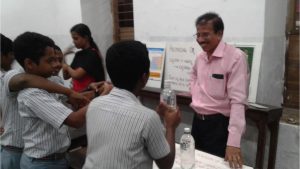 | 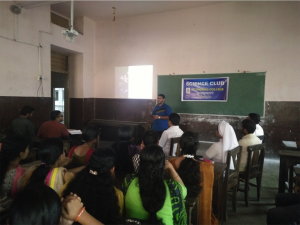 |
|---|---|
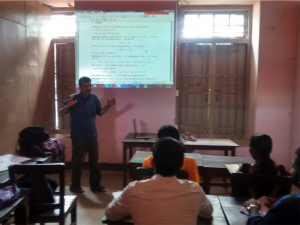 | 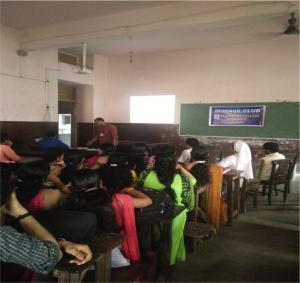 |
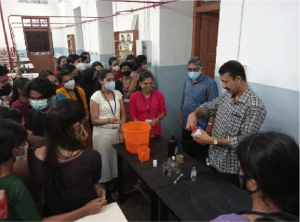 | 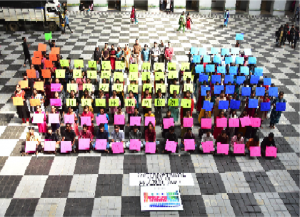 |
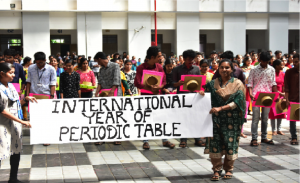 | 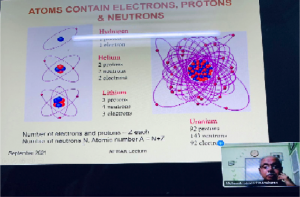 |

